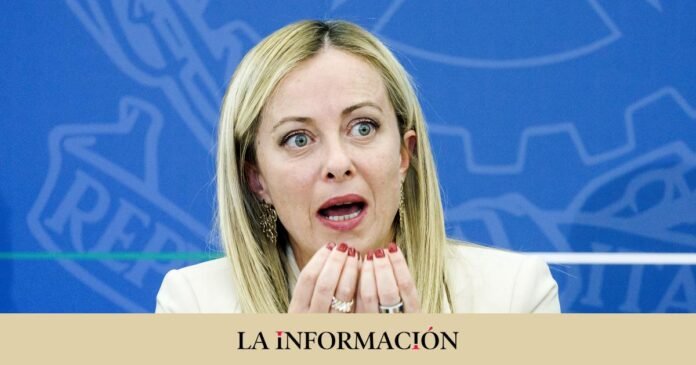The European Central Bank (ECB) points to the Italian Government and questions some aspects of the extraordinary tax that it wants to impose on the banking sector, considering that the tax could endanger the fluid transmission of monetary policies, adding that importing It may not be proportional to the profitability of the entities nor may it affect all of them equally.
The ECB points out that the Italian tax is levied on net interest income for 2023, the year in which financial institutions “could record lower profits or losses just at the time the rate is collected” and that it does not take into account the cycle complete economical. Likewise, the decree law maintains the tax even if the entity records losses in the component of profits that do not derive from net interest.
The ECB has indicated that it must be “prudent” to prevent the tax from making it impossible for credit institutions to build adequate capital reserves or provisions against deteriorations in the quality of their assets. Especially if the tax is going to have a greater impact on small banks that concentrate on granting loans, while entities with more weight tend to receive their income through other means.
Furthermore, he adds that the damage to solvency “jeopardizes” the “smooth” transmission of monetary policy to the rest of the economy and makes the banking sector “less resilient to economic shocks.” On the other hand, higher costs and credit restrictions could “adversely affect economic growth” in general. According to the ECB, the net effects of higher rates may be “less positive or even negative” in the long term compared to estimates, since the tightening of financing restricts the need for credit by economic agents. . and increases delinquency.
On the investment side, the issuing institute has recorded that the tax can make it difficult for the affected entities to attract capital and financing in the face of a “bleaker outlook.” Furthermore, the ECB rejects the retroactivity of the Italian tax, as it damages “investor confidence” and could lead to legal difficulties regarding its application. At the European level, the ECB assures that the tax “fragments the financial system” of the continent, generates risks of double taxation, “distorts the market” and “injures the resilience of the banking sector.”
The ECB has announced that the decree approving the tax on Italian banks was not accompanied by a memorandum justifying the need for the tax. However, he has assumed that the reason is to try to finance the costs for families and companies given the environment of high rates, but he has recalled that it is important to separate this type of taxes from the general collection made by the States to avoid the abuse of a tax that is supposed to be extraordinary in national fiscal consolidation plans.
On the other hand, the institution led by Christine Lagarde has warned that the tax does not clarify the treatment that some entities with open acquisition or merger processes will face during the period of validity of the tax, nor how this circumstance will affect the calculation of the amount to be paid.

